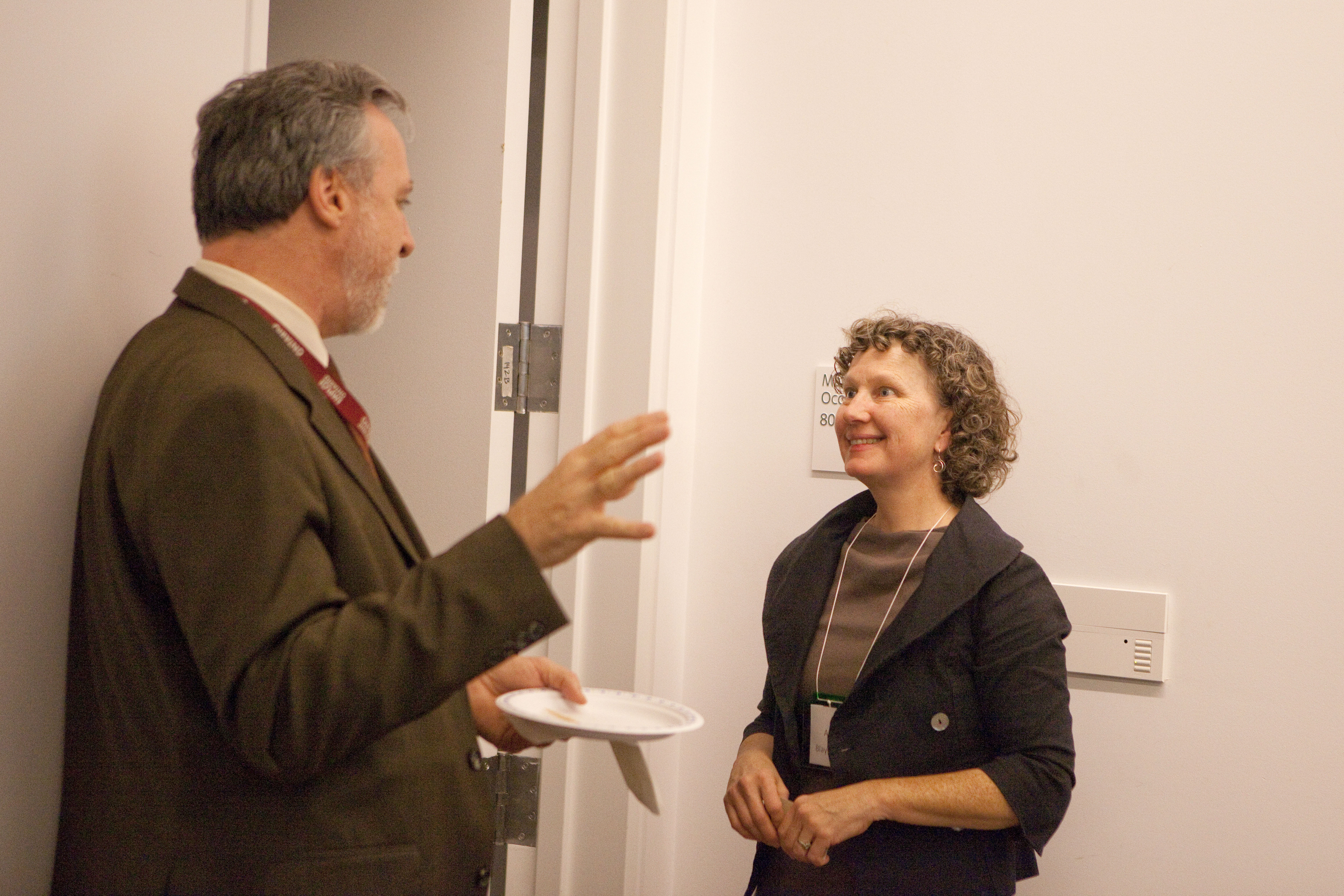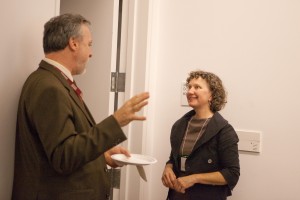Local food links to global systems


What is sustainability? And how does this relate to food systems?
These were some of the questions posed to panellists whose discussion opened up the launch of Wilfrid Laurier University’s Centre for Sustainable Food Systems last Thursday.
“We’re really excited about the launch, there were a lot of people there,” said Alison Blay-Palmer, a professor and the founding director for the centre. “A good cross-section between academics and also students.”
Each of the four panellists provided a unique take on the terms.
For Randy Whittaker, general manager for the Ontario Natural Food Co-op, sustainability is about something that can last forever. This, however, must take into consideration value chains and the social, economic and environmental context of the present reality.
“A food system that is sustainable cannot exist in a vacuum,” said Whittaker. “And so, we think of sustainable food systems and we’re trying to create that over here, but it also has to exist within a sustainable economic system, a sustainable political system that values long-term decisions, a sustainable healthcare system and sustainable educational system, just to name a few.”
For example, according to Whittaker, approximately 70 per cent of food is sold through supermarkets. Considerations like these must be accounted for when moving toward sustainable food systems.
Echoing the importance of creating linkages between food and economics, panellist Simon Dalby emphasized political and economic conditions as a factor of climate change and food systems.
“Thinking about food goes to the heart of personal security, it goes to the heart of politics and the economy,” he emphasized, drawing on land grabs as an example of how these sectors interact with food.
For others, emphasizing the individual or the local is equally important as looking at the broader picture.
“The way I often define sustainability, it’s simply looking at what things you as an individual value and then going around and nurturing those,” said Av Singh, an organic agriculture expert. “Nurturing the relationships that you have, nurturing the possessions that you have, nurturing the values that you have.”
Singh expressed that it’s important to think small and not just focus on grand narratives, which helps the individual find solutions.
PhD student and farmer Theresa Schumilas added, “It is a system where we continuously repair subterranean and terranean relations with near and distant others and with near and distant natures.”
With the establishment of the centre, researchers hope to make connections from the local to the global through research and education.
“We hope to educate people about supporting food systems that are healthy for themselves and their local communities and to do research about that, and to share that research into communities across the province, across Canada and into the global network we’ve established. And also to learn from those networks,” said Blay-Palmer.
“It’s sort of a constant flow of knowledge and research.”
The event also featured a reception with locally-grown food prepared by the Seven Shores Cafe and a keynote address by Bryan Gilvesy.


